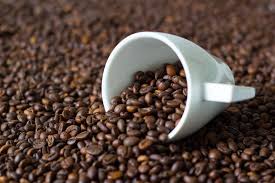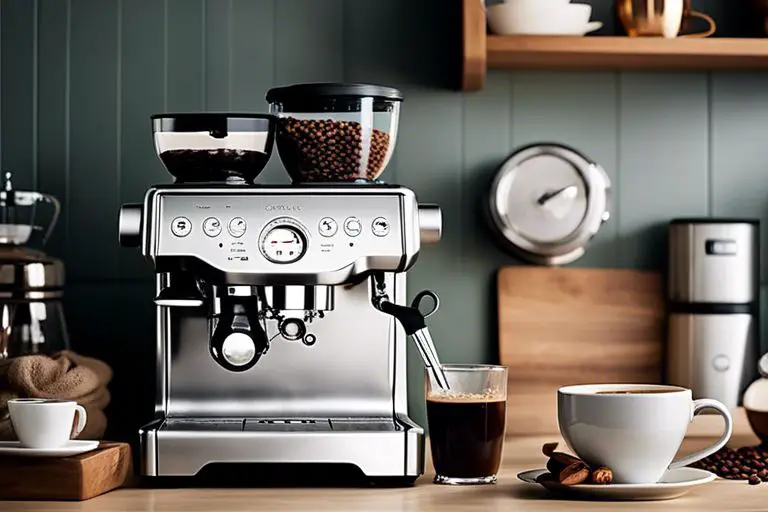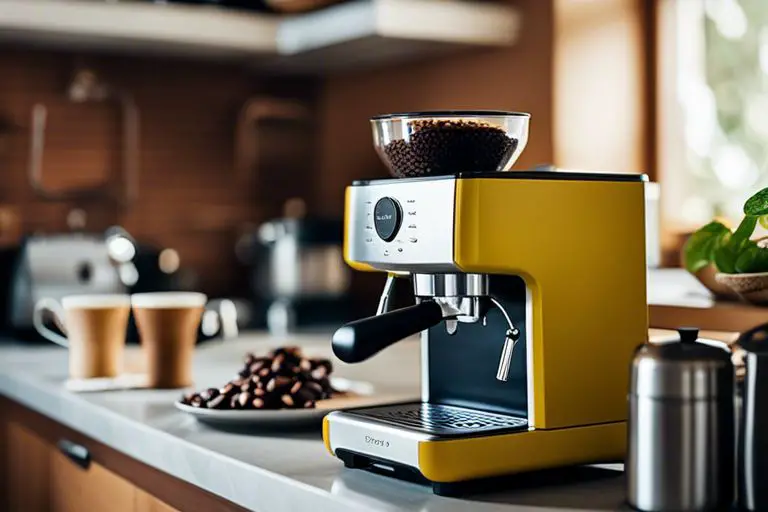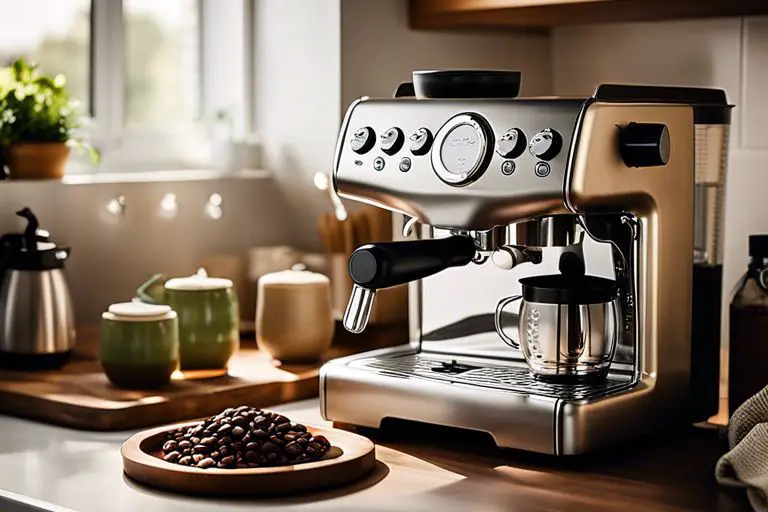Making good coffee is simpler than you think and by using some simple steps you can learn how to make good coffee that tastes better than a coffee shop in the comfort of your own home.
If coffee at home never quite seems to taste as good as the coffee you get in a coffee shop that’s because they use the principals listed below that anyone can use at home to produce coffee that costs a fraction of the price in a coffee shop and tastes better.
Here are 10 things to help you make the most delicious cup of coffee you have ever tasted:
Fresh Coffee
The number one biggest mistake that gets made is not using fresh coffee.
Coffee is not the type of product that you want to buy in bulk. Only ever buy enough to last you for a few weeks at a time, one month maximum.
Coffee will start to lose its flavour quickly once it has been ground down from whole coffee beans so if you don’t use beans then it will become stale quickly once you open the bag and break the vacuum seal.
Most people in the UK still drink a lot of instant coffee because it’s all they have ever known and it’s convenient.
If you want to taste good coffee then you should avoid instant coffee because it’s the lowest quality least fresh coffee you can drink.
Instant coffee has been pre-made and then frozen and turned into the coffee granules that you add to your cup.
The quality of coffee that gets used tends to be poor and combine that with the fact it’s been made months before and then frozen makes it an all-round bad idea.
This article explains more about instant coffee and why you should try an alternative:
Pre-ground coffee is the next best thing because at least it’s coffee that has been ground down from whole beans and then vacuum packed ready to be brewed using your favourite brewing method.
Once you open a bag of pre-ground coffee, drink it within a week or two to get the best out of it.
Check the bag for the roasting date when you buy coffee. There is a requirement to have a best before or use by date on all consumable food products but this is much less relevant for coffee.
Good coffee manufacturers will have the “roasted on” date as that’s the correct way to know how fresh your coffee is.
You’ll never find a “roasted on” date on instant coffee and almost never with pre-ground coffee.
This leads us nicely on to the best way by far to ensure the freshest coffee.
Buy whole coffee beans
Switching away from instant coffee or pre-ground coffee to whole coffee beans will transform the way you think about and enjoy coffee.
It opens up doors to a whole new world where you get to choose fresh coffee that you know has been roasted recently.
When you choose coffee beans always check the date the beans were roasted not the best before or use-by date.
If the bag doesn’t have the roasted date then don’t buy them. A lot of the cheaper supermarket bags of coffee beans don’t have the roasted date and that means they could be many months old when you buy them.
They are getting better though and the larger branches of Tesco and Sainsbury’s will have some decent coffee with the roasting date on them and Waitrose and M&S have a good selection.
Some of the best value for money coffee beans are not stocked in the large supermarkets because the roaster can’t produce the volume or the supermarkets won’t speak to the roaster because they are not big enough or don’t have the systems or the ability to supply them.
Good coffee beans don’t have to be expensive either. If you don’t have a local coffee roaster then you can get some good value for money coffee beans that have been recently roasted delivered right to your front door.
This article explains how to choose coffee beans with some suggestions of proven winners:
How to choose and buy coffee beans
Once you have your coffee beans how do you work out what to do with them?
Grind your coffee in the right way
Grinding your coffee beans correctly is a very important part of getting the best possible flavour from your coffee.
Some coffee machines come with an integrated coffee grinder but some don’t and certain brewing methods such as using a cafetière don’t come with a grinder so you’ll need to get yourself one.
You can spend a tenner on a coffee grinder or you can spend hundreds of pounds so there is something for everyone.
Regardless of how much you spend, one thing is very clear, grinding your own coffee beans with a grinder that cost £10 is better than using instant or pre-ground coffee every time.
Different brewing methods require a different level of grind fineness with cafetière coffee requiring a coarse grind and espresso a very fine grind.
This article explains exactly how to grind your coffee and why:
Use the correct brewing method
Making espresso and turning it into a cappuccino, flat white or latte is all the rage but there are loads of different ways to enjoy coffee and you don’t need an expensive coffee machine to do it.
Espresso is very strong and intense and whilst that’s what they serve up in coffee shops (with milk for cappuccino or latte) it may be that your palette is more suited to a milder coffee.
Experiment with different ways of making and enjoying coffee and you may find that you love coffee made with a filter coffee machine or a cafetière.
You don’t need an expensive coffee machine to enjoy good coffee. This article explains all of the most popular brewing methods:
What is the best coffee machine?
Measure the amount of coffee you use
Once you have worked out how to grind your coffee and discovered the best brewing method for your taste using the right amount of coffee to water will ensure you get the flavour just right.
Too much water and it will be weak and too little then it will be too strong.
For espresso as a guide, you should try and get twice as much liquid into your cup compared to how much ground coffee you use to start with.
So for example, if you use 20 grams of ground coffee to produce an espresso aim for 40 grams of liquid in your cup.
For filter coffee and cafetière coffee we have a detailed article that explains more:
Water quality
Water makes up around 90% of a cup of coffee with the rest being dissolved coffee from coffee grounds.
If such a large percentage of your coffee is water then it makes sense to use good water.
There is nothing wrong with water from the tap but it does have a lot of chemicals added to it during the purification process to make sure it is safe to drink.
I use the cheapest supermarket spring water that works out around 17p-20p for a 2 litre bottle.
Here is a detailed article that explains more:
What is the best water for coffee?
Water temperature
If you drink instant coffee then you will be used to putting on your kettle and pouring it straight into your cup when it boils.
Water boils at 100 degrees Celsius and not only is it impossible to drink coffee at that temperature because you’ll burn your mouth and throat it’s not a good idea to add boiling water to coffee at all.
Good espresso machines are defaulted to deliver water through coffee at 93 degrees for the best flavour.
So whatever brewing method you use, add your water before it boils and then wait a few minutes before drinking.
Store your coffee correctly
Looking after your coffee correctly once it has been opened will go a long way to keeping it fresher for longer.
For any coffee that you are not going to be drinking in the next 7 days get a cheap airtight container and store it in a cool cupboard.
This article explains more about storing coffee beans:
How to store coffee beans and keep them fresh
Once you have found some coffee beans that you love it can often be more cost effective to buy them in bags of 1kg rather than 250g or 500g but you may not drink enough quickly enough to justify buying the 1kg bags.
If you do it the right way, storing coffee beans in the freezer will retain their freshness for a good six months so you can buy a 1kg bag, break them down into batches of 250g and freeze what you won’t drink in the first few weeks of opening the bag.
This article goes through the most effective way to freeze your coffee beans:
Other ingredients used in coffee
If you like to add milk and sugar to your coffee then use good quality ingredients to your coffee.
If you have applied all of the tips above for your coffee you could ruin it by not using fresh milk for example.
Always use fresh milk as it tastes better and also froths better for cappuccinos and latte’s.
If you take sugar then use brown demerara sugar because it tastes better with coffee than regular granulated white sugar.
Cleaning your coffee machine
If you are using a coffee machine then its important to maintain it and give it a clean every couple of months.
Run a descaler through it and generally give it a good wipe over to keep it in good condition.
If you don’t service your car or look after it then eventually it will break. A coffee machine is the same.
This article explains how to care for your coffee machine:
How to clean and maintain a coffee machine
Following these 10 tips will ensure you get the very best out of your coffee and turn it from a daily ritual into a wonderful drinking experience.




